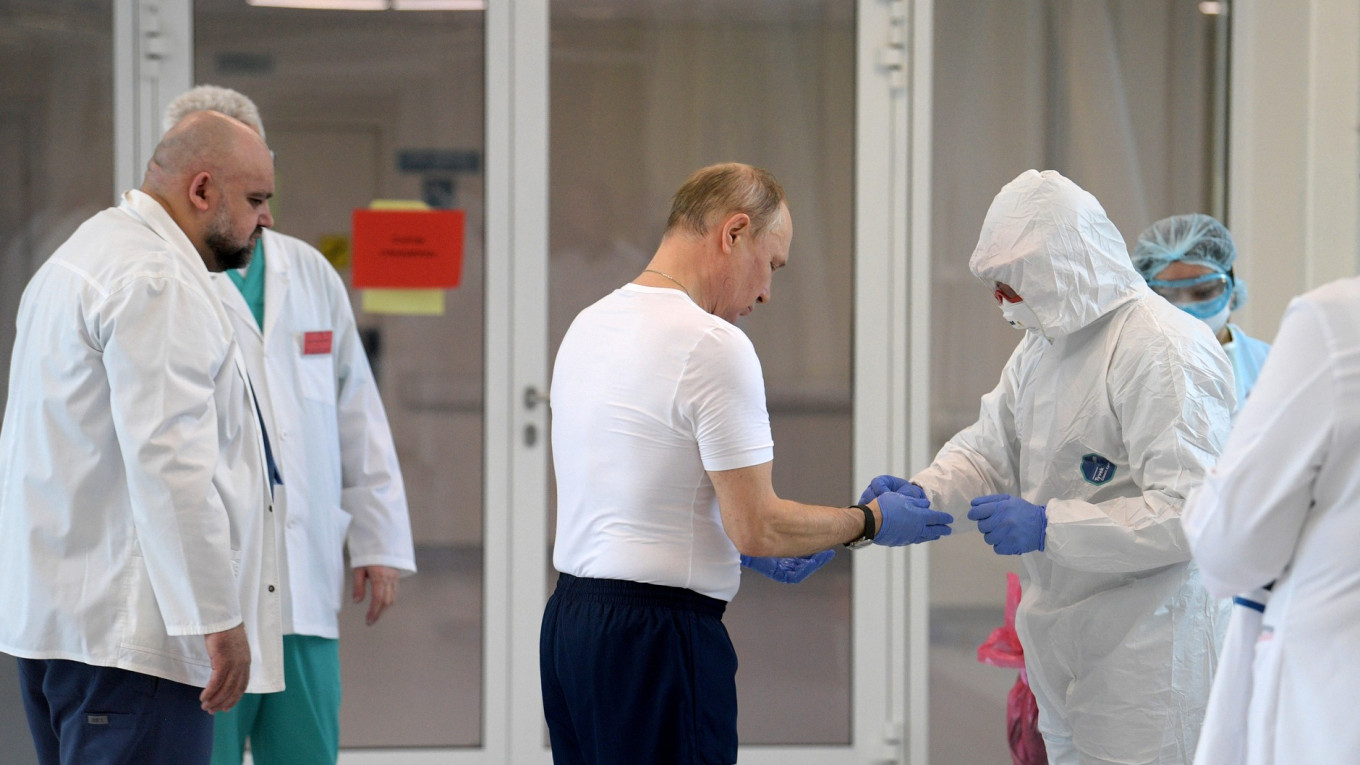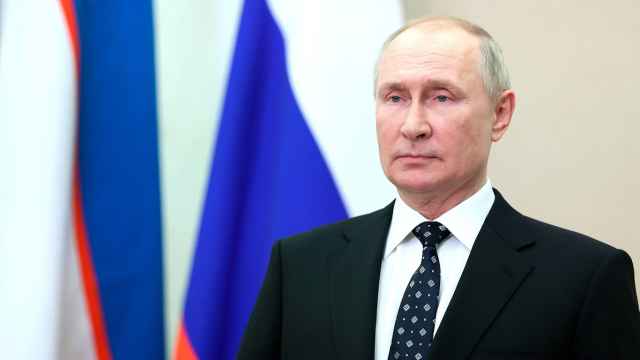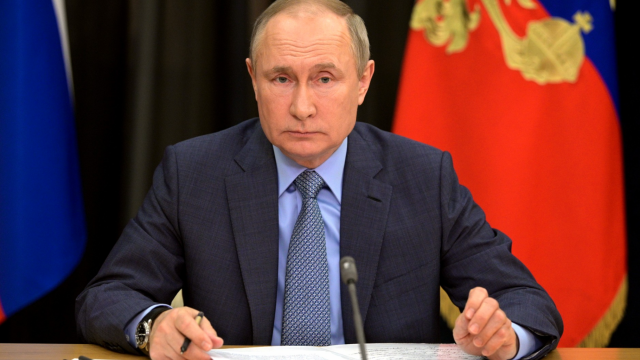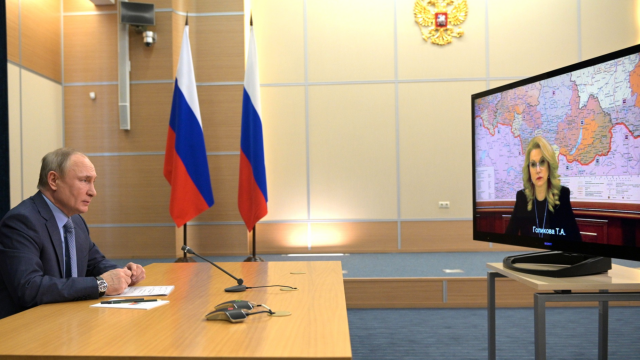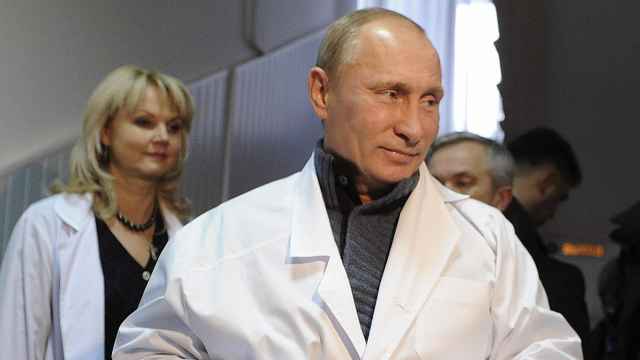President Vladimir Putin on Monday dismissed foreign criticism of Russia's Sputnik V coronavirus vaccine and said he planned to get a jab himself this week.
The state-sponsored Russian vaccine has yet to be approved for widespread use in Western countries, despite Moscow's insistence it is safe and effective, and the slow rollouts of vaccination campaigns in Europe.
Critics in the West have raised questions about the vaccine and accused Russia of using it as a propaganda tool, but Putin called such comments "strange" and suggested lives were being put at risk.
"We are not imposing anything on anyone... Whose interests are such people protecting -- of pharmaceutical companies or the interests of citizens of European countries?" he said in a televised meeting with health officials.
After months of queries about when the 68-year-old would himself be inoculated, Putin said he planned to do so on Tuesday.
"Vaccination is of course the voluntary choice of every person... By the way, I intend to do it myself tomorrow," he said.
Russia registered Sputnik V in August, ahead of large-scale clinical trials, prompting worries among many experts over the fast-track process.
Later reviews have been largely positive, with leading medical journal The Lancet publishing results showing it safe and more than 90% effective.
EMA experts to visit
"Despite the deliberate discrediting of our vaccine, more and more countries are showing interest in it," Putin said.
Health Minister Mikhail Murashko said during the meeting that experts from the European Medicines Agency will travel to Russia on April 10 to review clinical trials conducted on the vaccine.
The Amsterdam-based EMA this month launched a rolling review of Sputnik V, a key step towards it being approved as the first non-Western coronavirus jab to be used across the 27-nation bloc.
On Sunday, EU Internal Market Commissioner Thierry Breton said Europe had "absolutely no need for Sputnik V," sparking a fierce response from Moscow.
The Russian Direct Investment Fund (RDIF), which backed the development of Sputnik, accused Breton of being "clearly biased" against the jab because it was Russian.
"Europeans want a choice of safe and efficient vaccines, which you so far failed to provide," the RDIF said on Twitter, adding that Sputnik V has been approved for use in 55 countries.
The vaccine dispute comes amid heightened tensions between Moscow and the West, with Europe and the United States imposing new sanctions on Russia over the poisoning and jailing of Kremlin critic Alexei Navalny.
In a phone call with European Council President Charles Michel on Monday, Putin accused Europe of "unconstructive, often confrontational policies" in relations with Moscow.
With EU leaders meeting for a summit in Brussels on Thursday and Friday, Putin said Moscow was ready to resume normal ties if Europe is willing, the Kremlin said.
Michel blamed Russia, saying after the call that Moscow needed to implement a peace deal with Ukraine, stop "hybrid and cyberattacks" on EU states and respect human rights.
Vaccine skepticism
Russia's own vaccination campaign has been slower than in many countries. Only about 4 million of the country's 144 million people have so far received two doses of a vaccine, and another 2 million a first dose.
Vaccine skepticism runs high in Russia, with a poll this month showing less than a third willing to have a jab, and close to two-thirds saying they believe the coronavirus is a man-made biological weapon.
The country has been among the hardest hit by Covid-19, with more than 4.4 million cases of the coronavirus and more than 95,000 deaths.
After a strict lockdown in the spring, Russian authorities did not impose a full lockdown despite a surge in cases this winter, and have instead been gradually lifting virus-related restrictions.
A Message from The Moscow Times:
Dear readers,
We are facing unprecedented challenges. Russia's Prosecutor General's Office has designated The Moscow Times as an "undesirable" organization, criminalizing our work and putting our staff at risk of prosecution. This follows our earlier unjust labeling as a "foreign agent."
These actions are direct attempts to silence independent journalism in Russia. The authorities claim our work "discredits the decisions of the Russian leadership." We see things differently: we strive to provide accurate, unbiased reporting on Russia.
We, the journalists of The Moscow Times, refuse to be silenced. But to continue our work, we need your help.
Your support, no matter how small, makes a world of difference. If you can, please support us monthly starting from just $2. It's quick to set up, and every contribution makes a significant impact.
By supporting The Moscow Times, you're defending open, independent journalism in the face of repression. Thank you for standing with us.
Remind me later.


